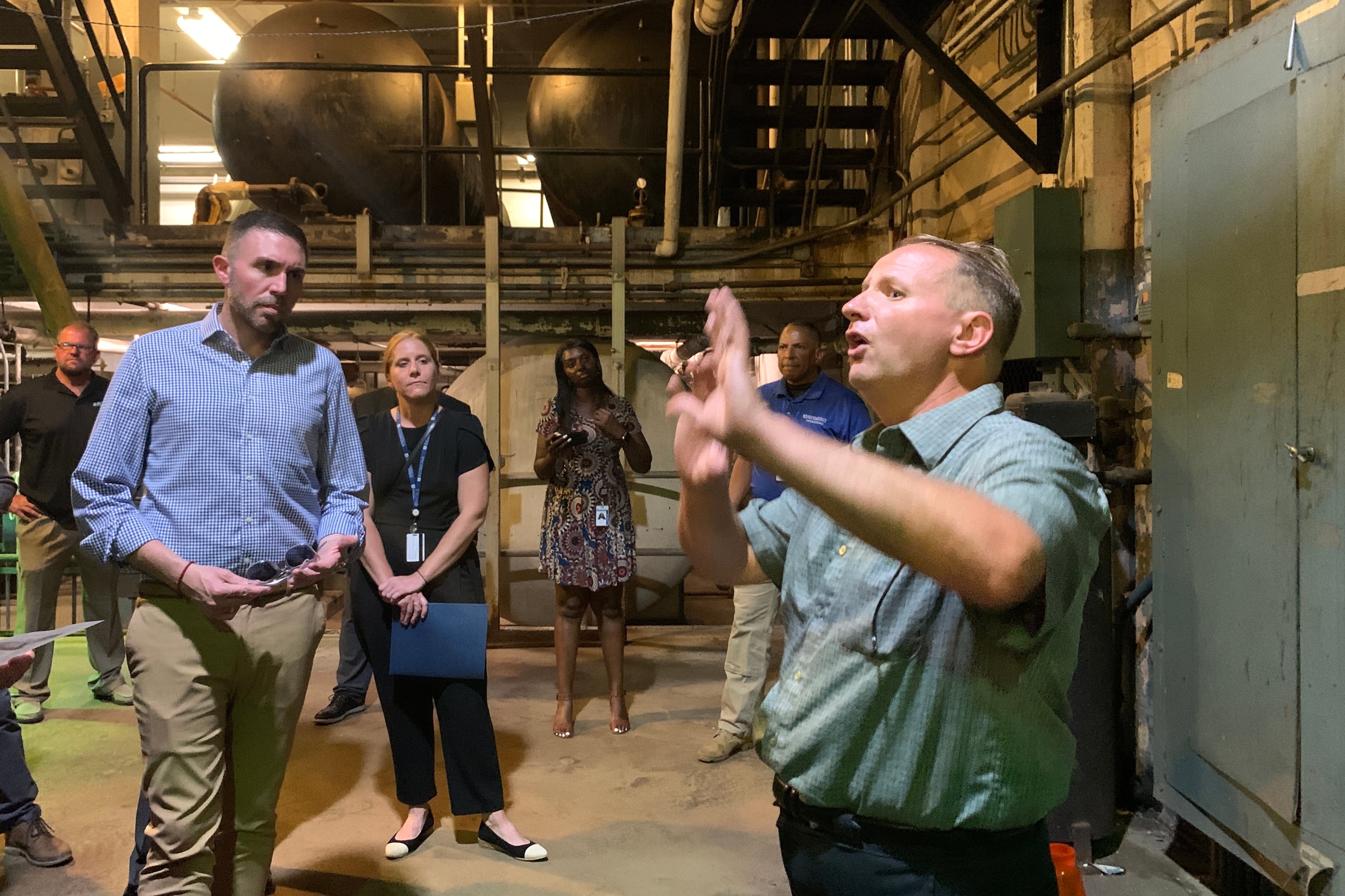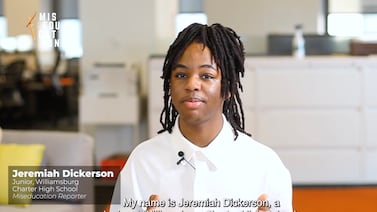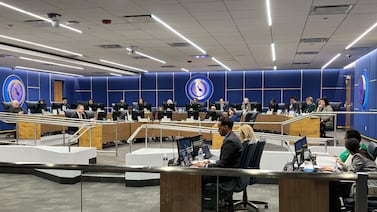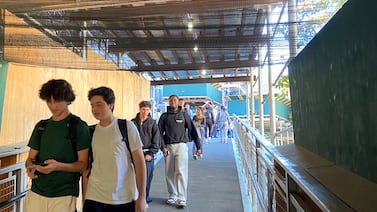The city of Philadelphia and its school district have settled a lawsuit over building code that would have stripped the district of its authority to open schools dealing with asbestos and other environmental hazards.
In return for dropping the suit, the district will get $2.5 million from the city to help with data management and the city will assist the district with putting together a vetted “asbestos investigator workforce” to help the district meet its “intense [school] inspection demands.”
The settlement news broke during a City Council hearing called by education committee chair Isaiah Thomas on a proposal to create an independent authority to manage school facility construction and management.
The settlement was “reached after five months of vigorous, good-faith negotiations,” according to a joint statement from the city, Board of Education, and district leadership on Wednesday and “reflects greater accountability and transparency around the District’s environmental management.”
City and school officials are casting the agreement as the harbinger of a more collaborative and aligned relationship between the city and district. The suit was an unprecedented shot-across-the-bow from the school board who feared city officials would use new building code to wrest authority away from the district to close schools due to hazardous asbestos or other environmental problems. The lawsuit also angered some in city government who blamed the district for lacking transparency and failing to quickly remediate environmental dangers to students and staff.
In the past few months, six schools closed due to hazardous asbestos, and district officials have warned more temporary closures could be looming. One school, Frankford High School, which happens to be Thomas’s alma mater, still won’t be fully open to all students this fall.
In an interview, school board President Reginald Streater told Chalkbeat the settlement is a sign that “everything is falling into place at the right time,” because of the “partnership” between the city, board, and district.
“To me this is all positive,” Streater said. The agreement means the district will get more resources and the district and board will be “better partners in informing the public” going forward.
New master plans on the horizon
Superintendent Tony Watlington told council members at the hearing that the district is in the process of updating its 2017 Facilities Master Plan assessing the needs of each of its more than 300 buildings. He and Streater estimated that fully upgrading and modernizing the school district’s massive infrastructure, whose buildings on average are 73 years old, would cost nearly $8 billion.
Watlington said the new facilities study will be completed in June. He said that “internal and external stakeholders,” including not just district personnel but community members, would be involved to “construct a vision for modernizing learning facilities throughout Philadelphia.”
Oz Hill, the district’s deputy chief operating officer, said at the hearing that the district was also developing a “swing space master plan” to identify buildings in four quadrants of the city that could house students temporarily displaced due to environmental hazards in their schools or to construction and renovation efforts.
On Monday, Hill led a group of Democratic state legislators on a tour of South Philadelphia High School, which was built in 1957. They literally gasped at the sight of the antiquated, creaky HVAC and electrical systems as the district’s director of facilities, Jeff Scott, explained that in some cases, parts to repair them are no longer available. “We have to scavenge,” he said.
He pointed to boilers built in 1989 with a shelf life of 30 years that are still in operation. “We’re operating on borrowed time,” Scott said. The old systems cause some parts of the building to be hot while others are cold, he said.
“The challenges here are reflective of the challenges we have throughout the district,” Hill told the legislators and others on the tour.
Fully updating the HVAC systems in the district’s buildings would cost $40.6 million, while it would cost $28.4 million to modernize the electrical grid, he said.
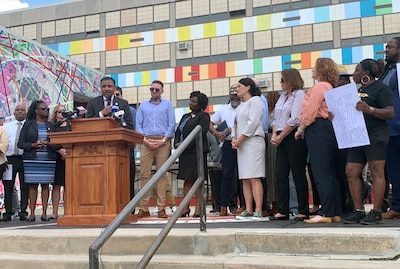
At the hearing, several council members noted that the district’s facilities problems relate to what they called the historic underfunding of city schools by the state. One outside expert witness, Mary Filardo of the 21st Century Schools Fund, a national nonprofit dedicated to modernizing schools, noted that Pennsylvania ranks near the bottom of states in its commitment to facilities needs for their districts.
“This is an area where states have to do much more,” she said. “States haven’t stepped up to their responsibility.” She said national average state funding for capital costs to its districts is only 16% – compared to more than half of operating costs – “and Pennsylvania is even lower than that.”
While Gov. Josh Shapiro proposed in his budget $500 million over five years to help school districts with capital needs, that line item was deleted by the Republican-controlled Senate. The entire state budget is now held up over a dispute regarding school vouchers.
What the parties have agreed to
The settlement agreement requires the district to inspect all school buildings twice annually and post reports from those inspections online “in a timely manner” including “detailed information” about any asbestos abatement.
Under the Asbestos Hazard Emergency Response Act, or AHERA, the federal law regulating asbestos containment, every school must be inspected every three years, with “periodic surveillance” every six months.
While the settlement doesn’t substantively change any school inspection requirements, it gives the district $2.5 million from the Department of Public Health. That money will help “improve data management associated with environmental hazard reporting” so it can meet the federal AHERA mandates.
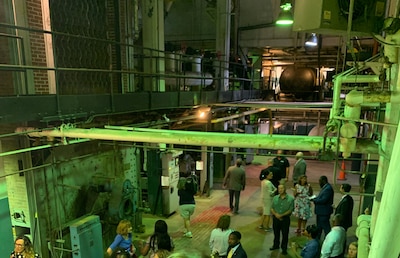
According to the settlement agreement, the district has completed more than 300 inspections of district buildings since August 2022.
The joint statement on Wednesday reflects a change of tune from the early days of the lawsuit.
The suit was originally filed by the school board in January 2023 and alleged that a building code update — created by Bill 210685-AA — would give a mayor-appointed committee, rather than the school district, power to certify the safety of school buildings.
At the time the suit was filed, city officials criticized the board’s decision to sue rather than publicly work with them on building safety.
Former City Councilmember and mayoral candidate Derek Green, who cosponsored the bill creating the code change, said in an interview Wednesday that he “hope[s] this spirit of communication and the spirit of cooperation,” between the city and school leaders, “continues going forward to not only address asbestos,” but some of the other issues the district is facing including costly capital needs and the need for more state aid for the district.
Schools aren’t just ‘a different kind of office building’
While Streater and Watlington did not oppose the idea of an outside agency to supervise and manage school construction, they emphasized all the work that the district has been doing to upgrade its facilities. Watlington noted that the 2017 facilities plan estimated that there was $4.5 billion in deferred maintenance. Between 2013 and 2023 the district invested $1.72 billion in facilities, including the construction of several new buildings, and currently plans to spend nearly $2.5 billion over the next five years.
But Filardo and other outside experts who testified raised caution about the model of using an independent school building agency, which has had mixed results in other cities and states.
Cynthia Smith, the executive director of facilities planning, design and construction of the Baltimore City school district, raised the thorny issue of permanent school closures that could be a part of any effort to modernize and upgrade the city’s educational infrastructure. Even when people are offered a brand new school in the neighborhood, they often rebel, she said, especially after they were on the front lines in fighting for more state funds. “That is a very difficult part of this process,” she said.
Plus, such an authority needs to have people who understand the needs of schools, not just construction, she said. They have to understand that schools aren’t just “a different kind of office building.”
Filardo also said, after listening to Watlington explain what the district is planning, said it sounded more like an architectural plan than a comprehensive educational vision. “I don’t think it’s going to get you there,” she said.
Thomas said that he learned a lot from the witnesses and said the agreement between the city and district on the facilities issue was a step forward. “Instead of lawsuits, let’s work collaboratively for our students, teachers, and families,” he said.
Streater seconded that.
“I hope we never go down that route again,” Streater said.
Carly Sitrin is the bureau chief for Chalkbeat Philadelphia. Contact Carly at csitrin@chalkbeat.org.
Dale Mezzacappa is a senior writer for Chalkbeat Philadelphia, where she covers K-12 schools and early childhood education in Philadelphia. Contact Dale at dmezzacappa@chalkbeat.org.

